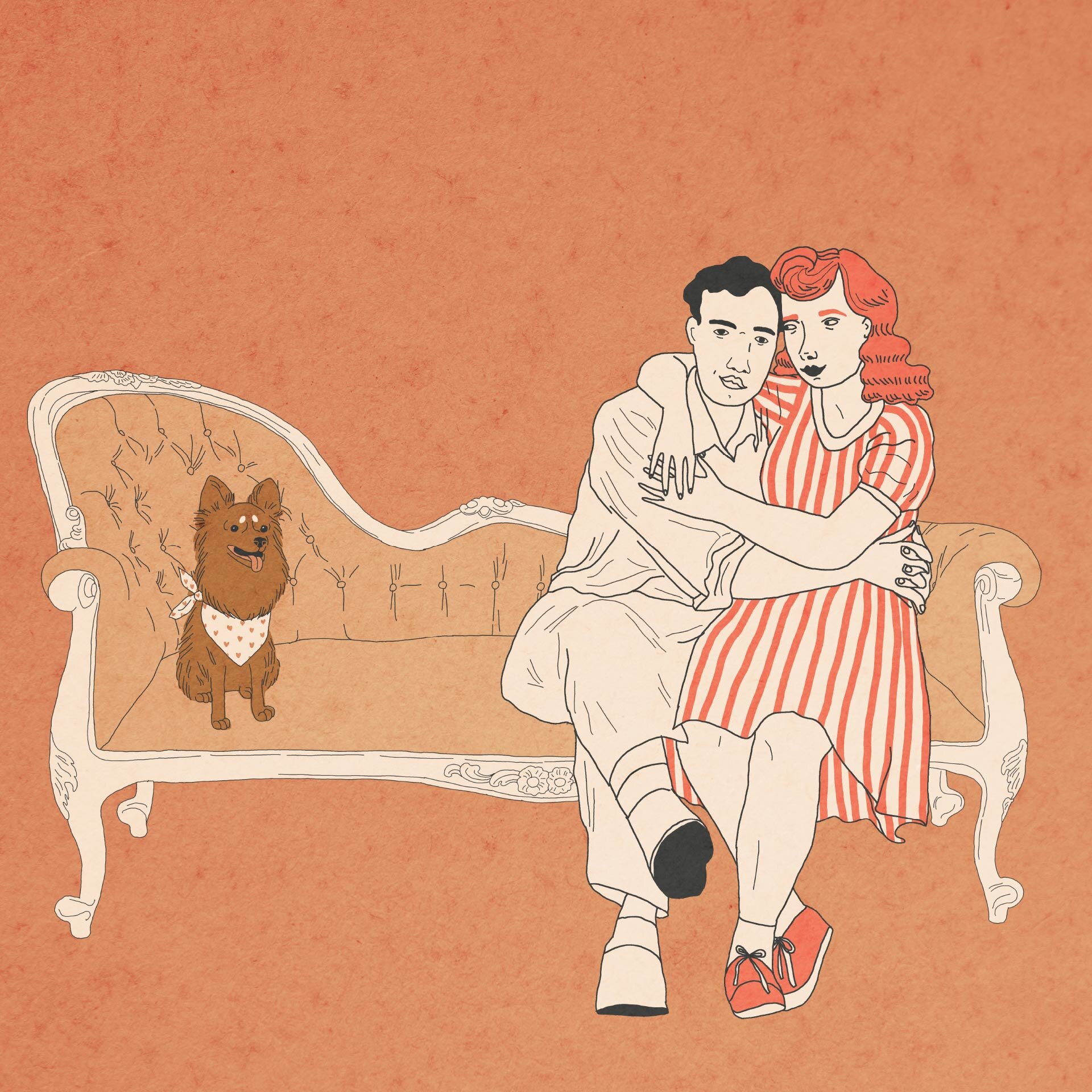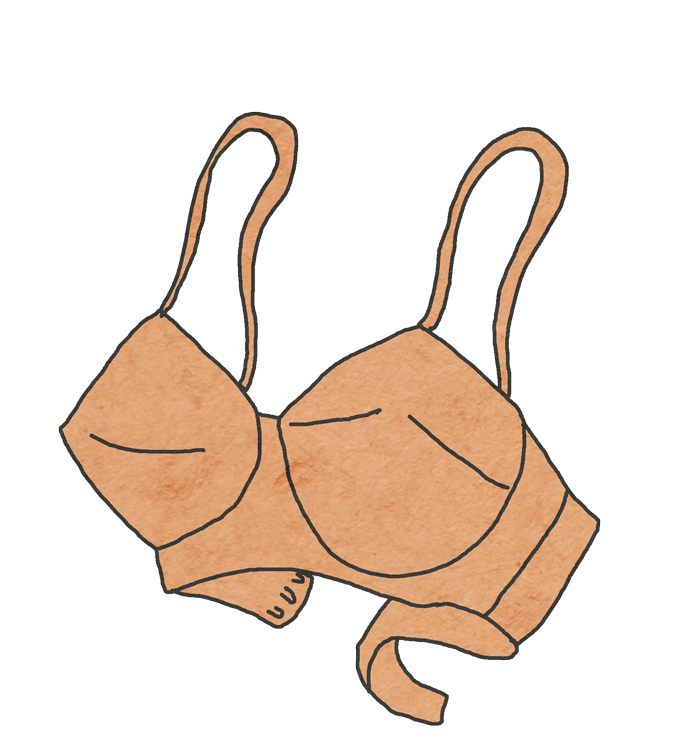After the Camp Fire
My possessions survived one season of wildfires, but my fear of future displacement remains
by Jackie Powers
Instagram
Editor: Karrie Witkin | Designer: Haley Burson | Illustrator: Rabbit Person Illustration | Copyeditor: Katie Frankowicz | Communication/Support: Meg Chellew
In times of crisis, finding a supportive community is one of the most important steps toward recovery. From the first day that the Camp wildfire swept through my town in 2018 (a day that I describe here), I discovered that despite having moved to the Chico area only a year and a half earlier, I was surrounded by a network of caring and generous people ready to help however they could. There are many small moments where someone’s help got me through this time in my life. My friends offered me clothes. My company offered all who were affected a bonus, Thanksgiving groceries, and the option of renting a temporary RV in a fleet furnished by our CEO and the CEO of Sierra Nevada Brewing Company. Local businesses donated their wares and sites began popping up where fire survivors could take donations. Even larger entities like Vans and Guy Fieri came out to help our little town.
For all good intentions, the truth is a lot of what was donated wasn’t truly needed, especially when it came to stuff. A 2020 article from the Sacramento Bee cited that after the Camp Fire, the county had enough unwanted donations to fill an empty ex-Toys R Us, a municipal auditorium, and two 20,000 square foot storage facilities. Items included things survivors did not need, like prom dresses and bikinis while sorting through the items took time away from volunteers to help in other ways. Most people want to help, and this might be the only way they know how. All this creates, however, is an overwhelming abundance of unnecessary garbage. I struggle to imagine the mountains of donations from all the disasters that have happened in recent years if just one fire produced as much as it did.
I never went to the donation sites for supplies. For one, even when I thought my place had burned down, I felt I was in a secure enough position where it was unnecessary and unfair of me to take what others might need more. Perhaps less consciously, I didn’t really want other people’s old stuff even if it was useful; if I couldn’t have my old things back then I wanted to be able to choose exactly what I would use in the future. I didn’t want to feel like I was borrowing someone else’s clothes. I wanted normalcy. I imagine this feeling was probably true for other survivors as well. Donations I took from my friends felt kind and needed in that moment, but the act of generosity meant more than the item itself.
The only time I experienced a glimpse into the mass quantities of donations was when Hanes sent my company boxes upon boxes of undergarments for victims. My coworker and I went through them together, rifling through an unsorted mess of panties, bras, and even lingerie, all of which appeared to be sample sizes. I took a few bras that day and a terrible lace teddy for no reason other than it was there for the taking; it ended up fitting like no human had ever tried it on. Only one item still has a place in my dresser drawer. The rest just didn’t fit or feel right; they felt like temporary fill-ins that I took just because I thought it was the polite thing to do, or just to feel better in that moment.
The weekend of the fire, another coworker reached out and offered me a room to stay in for as long as I needed to get back on my feet. My other option was to move back in with my boyfriend in Redding, but the offered room was significantly closer to my job and I realized that the progress to normalcy wasn’t going to be quick. From November 2018 until April 2019, I lived in her spare room, which was half the size of a standard bedroom, in the tiny farming town of Orland. Looking back, this shelter was what I needed most at the time.
When I lived in the tiny room in Orland, at first I didn’t have much of anything to fill the space. Then, after I was able to return to my apartment, I started to fill it with the possessions I wanted to keep close. By tremendous good fortune, my apartment and belongings suffered no damage in the fire, but residents were not permitted to return to Paradise for several months. Little by little, I fit as much as I could into that spare bedroom, getting creative with the storage. I was aware that I had gone with very little for more than a month and did just fine. My nesting wasn’t about needing material possessions; I just wanted to make the space feel more like mine. When my boyfriend moved my bed from the Paradise apartment into that room the weekend of my birthday, replacing the air mattress I had been using, my temporary lodgings almost felt like home. This was February and it was the first time I had slept in my own bed since November; it had never been cozier.
Up until February, I thought I would move back to my place in Paradise. In the meantime, my unoccupied apartment served as a free storage space for anything I couldn’t keep with me, and I would make regular visits after work to check up on it and make sure it was all still there. If I didn’t, I became anxious. My visits never felt very productive. I would pack up and take some more things, but mostly I would spend aimless time alone. If there was one thing that had become precious after living with four other people, two dogs, and a cat, it was personal space. In hindsight, I think I went there because I longed for the quiet and total privacy that I had just barely established for myself.
The apartment felt eerie, especially on those dark winter nights on a rural road surrounded by the aftermath of destruction. It had been built on the foundation of an old motel, and sometimes I’d irrationally start to imagine that old guests still haunted the space. Often I’d be the only resident at the building. Having lived there for less than three weeks, I never got to know anyone else in the complex. It seemed strange that I never talked to anyone, even though we had shared this unique experience. I often wonder where my former neighbors are now, whether any of them actually moved back in, and if not, how they moved forward.
One night, I discovered the dumpsters filled with personal possessions; these were completely undamaged, usable items that I could not believe someone would throw out. Purses, hats, toys, and luggage were stuffed into overflowing bins. To this day it shocks me. I have never been able to wrap my head around why anyone would willingly trash their surviving belongings, especially when I couldn’t bear to leave mine behind. Maybe the owner thought they were damaged or ruined with toxins released during the fire. Maybe they were in such a hurry to move forward that they dumped everything for a quick exodus and completely fresh start. Later, I found mattresses and furniture that were left behind and I personally salvanged an entire entertainment shelf. I try not to judge given the circumstances, but I’m still baffled by how much people can simply discard.
Looking back, I think the moment my bed left the apartment was the moment I started to feel that I wouldn’t move back. Too many months had gone by with no word from the landlord about whether we were free to return for good, and I didn’t want to burden my hosts in Orland for much longer. My stuff was spread across three places, and I became so envious of anyone with a home of their own. Truthfully, I couldn’t stand being in that apartment; it didn’t feel like mine. I knew I needed to move forward, and the only thing in my power was to find a new place to live. So I did, and by April, after a vigilant hunt, I moved into an apartment in downtown Chico and began a new chapter. This turned out to be for the better. Meanwhile, people began to move back and rebuild Paradise. I haven’t returned since retrieving the last of my things, and I often wonder about who moved into the unit after me.
I still fear fire. I still fear losing all my things and I cling to them tighter. Each summer, the temperatures rise earlier in the season, and sparse rains in the spring leave dry conditions that are vulnerable to ignition. If there isn’t a fire burning close to my home, then there’s one burning near someone else’s. As summer approaches this year, and as I revisit this experience, I realize just how much I anticipate the possibility that this story could repeat all over again. And if it does, how much luck do I have left? I wonder if I should have learned the lesson of loss the first time. Maybe I missed an opportunity to heal and grow if I had lost everything to the fire on Nov. 8, 2018. Perhaps, at the very least, I would be less afraid of the loss that might be in my future.
There is one thing I learned and that is how important having a home is to me. Not just a shelter, but a space that is truly my own; where my bed is, where my loved ones are, and where I can feel secure, at peace, and completely myself. It took a while after the fire (and unfortunately through the circumstances of a global pandemic) but in the last year I finally established a firm foundation. Since I’ve been able to work remotely, I moved back in with my boyfriend, adopted a dog, and settled in. It’s hard to express just how grateful I am for this. Maybe in the future, my home won’t be in this same house or even in the same city. Maybe we will face disaster again. I can’t hope that anything will remain constant or that I’ll hold on to everything I own forever, but I can hope to always have this sense of home.







